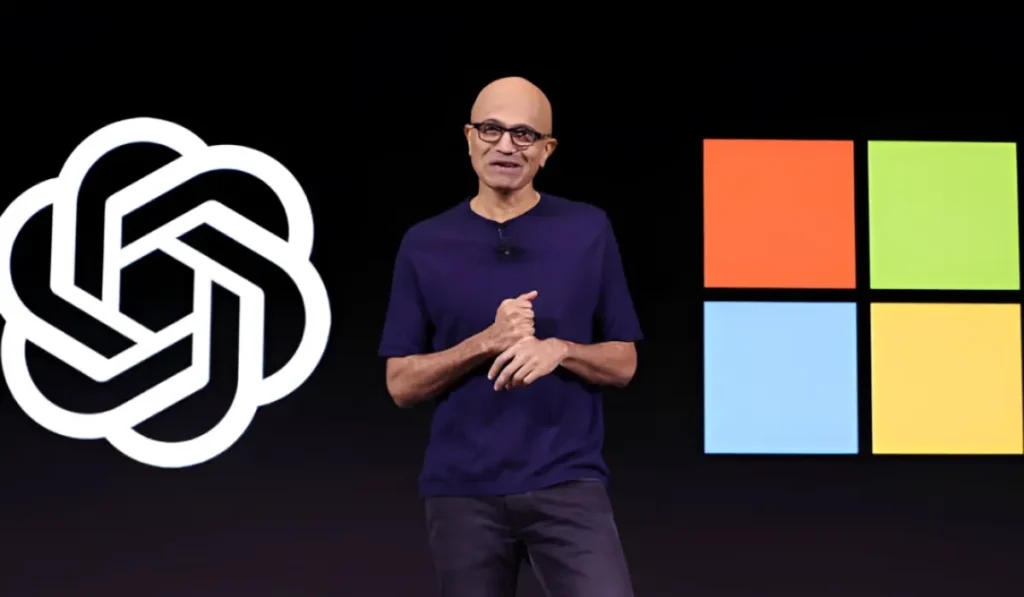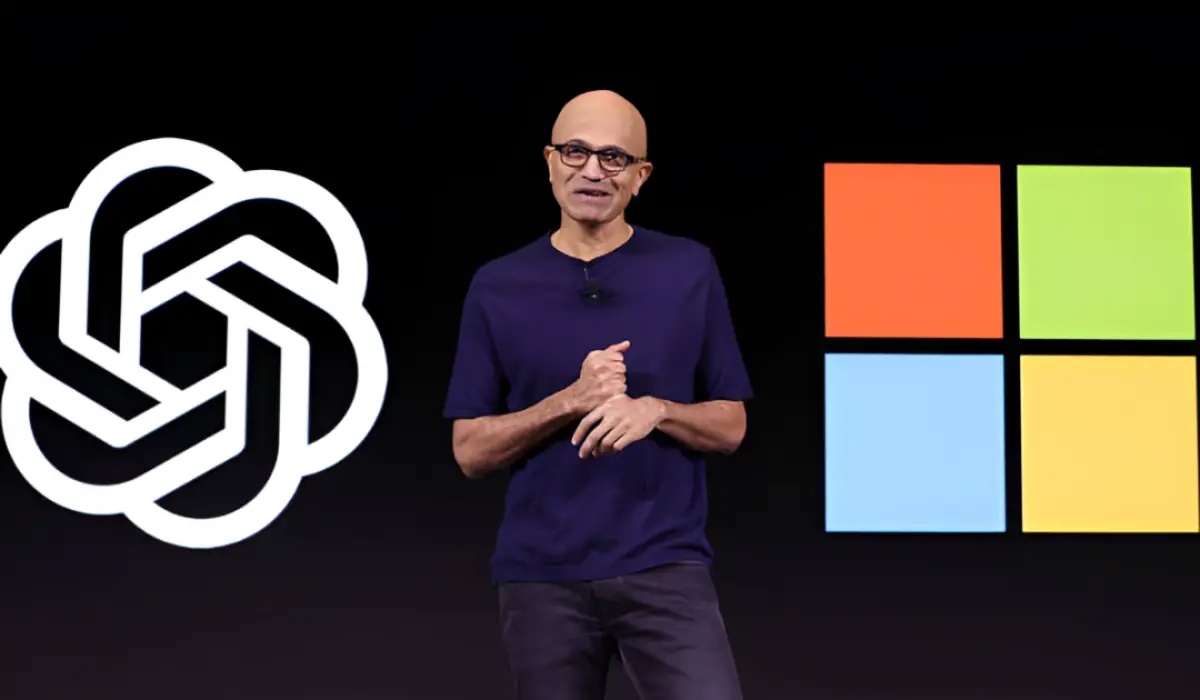
Leaked Emails: Unveiling the Motivation Behind Microsoft’s OpenAI Deal
The world of technology is constantly evolving, with artificial intelligence (AI) being one of the most exciting and transformative advancements. Behind the scenes, however, a fierce competition has been brewing between tech titans like Microsoft and Google, both vying for dominance in this groundbreaking field. Recently leaked emails offer a fascinating glimpse into a pivotal moment in this race – Microsoft’s billion-dollar investment in OpenAI, a research lab dedicated to developing safe and beneficial artificial general intelligence (AGI).
These emails, released as part of an ongoing antitrust lawsuit against Google, unveil a sense of urgency within Microsoft. In a June 2019 email titled “Thoughts on OpenAI,” Kevin Scott, Microsoft’s Chief Technology Officer (CTO), expressed his deep concern to CEO Satya Nadella and co-founder Bill Gates about Microsoft falling behind Google in the AI race. Scott highlighted the significant gap in capabilities, stating: “We are multiple years behind the competition in terms of machine learning scale.” He provided a concrete example, explaining how it took Microsoft engineers six months to replicate Google’s BERT language model due to limitations in their infrastructure.
Scott’s initial skepticism towards AI research is also evident in the emails. He mentions being initially dismissive of early efforts focused on impressive feats like game-playing AI, referencing Google DeepMind’s AlphaGo Zero demonstrations. However, as the focus shifted towards natural language processing models, Scott’s perspective shifted dramatically: “As I dug in to try to understand where all of the capability gaps were between Google and us for model training, I got very, very worried,” he wrote.
These concerns stemmed from Google’s early AI models offering a distinct competitive advantage. Scott specifically mentioned Bing lagging behind Google Search and praised Google’s eerily accurate autocomplete features in Gmail, stating they were “getting scarily good” in 2019. This highlights how Google’s AI advancements were translating into real-world benefits for its users, putting pressure on Microsoft to catch up.
Nadella’s response to Scott’s email underscores the strategic importance of the OpenAI investment. He forwarded the email to Microsoft’s CFO, Amy Hood, emphasizing, “this is why I want to do this.” This simple statement underlines the critical role AI plays in Microsoft’s future. Nadella, known for his laser focus on strategic growth, clearly saw AI as a key differentiator for Microsoft.
The leaked emails offer only a glimpse into the high-level discussions, with key details redacted. However, Business Insider previously reported that Gates, who stepped down from the Microsoft board in 2020, had been instrumental in fostering the relationship with OpenAI since 2016. According to their report, Gates had been regularly meeting with OpenAI and played a crucial role in brokering the deal.
Fast forward to today, Microsoft’s investment has ballooned to over $13 billion. OpenAI’s models are now integrated into core Microsoft products like Office applications, the Bing search engine, the Edge browser, and even the Windows operating system. This strategic move has helped Microsoft shed its image as an AI follower and establish itself as a leader in the field.
Looking ahead, CEO Satya Nadella has made AI and security his top focus areas for Microsoft. He recently stated, “AI and security are the two most important areas of focus for Microsoft in 2024 and beyond.” This signals a continued commitment to integrating AI across their products and services. The leaked emails offer a fascinating glimpse into the motivations behind Microsoft’s billion-dollar bet on OpenAI, highlighting the intense competition driving advancements in artificial intelligence.
The story of Microsoft’s OpenAI investment serves as a reminder of the “fear of missing out” (FOMO) that can drive innovation in the tech industry. Microsoft, worried about falling behind Google in the AI race, took a bold step by investing heavily in OpenAI. This investment has not only helped Microsoft stay competitive but has also pushed the boundaries of what AI can achieve.
The leaked emails also raise questions about the future of AI development. With tech giants like Microsoft and Google pouring billions into the field, the race to create ever-more sophisticated AI is sure to continue. It will be interesting to see how this competition shapes the future of AI and its impact on our lives.


